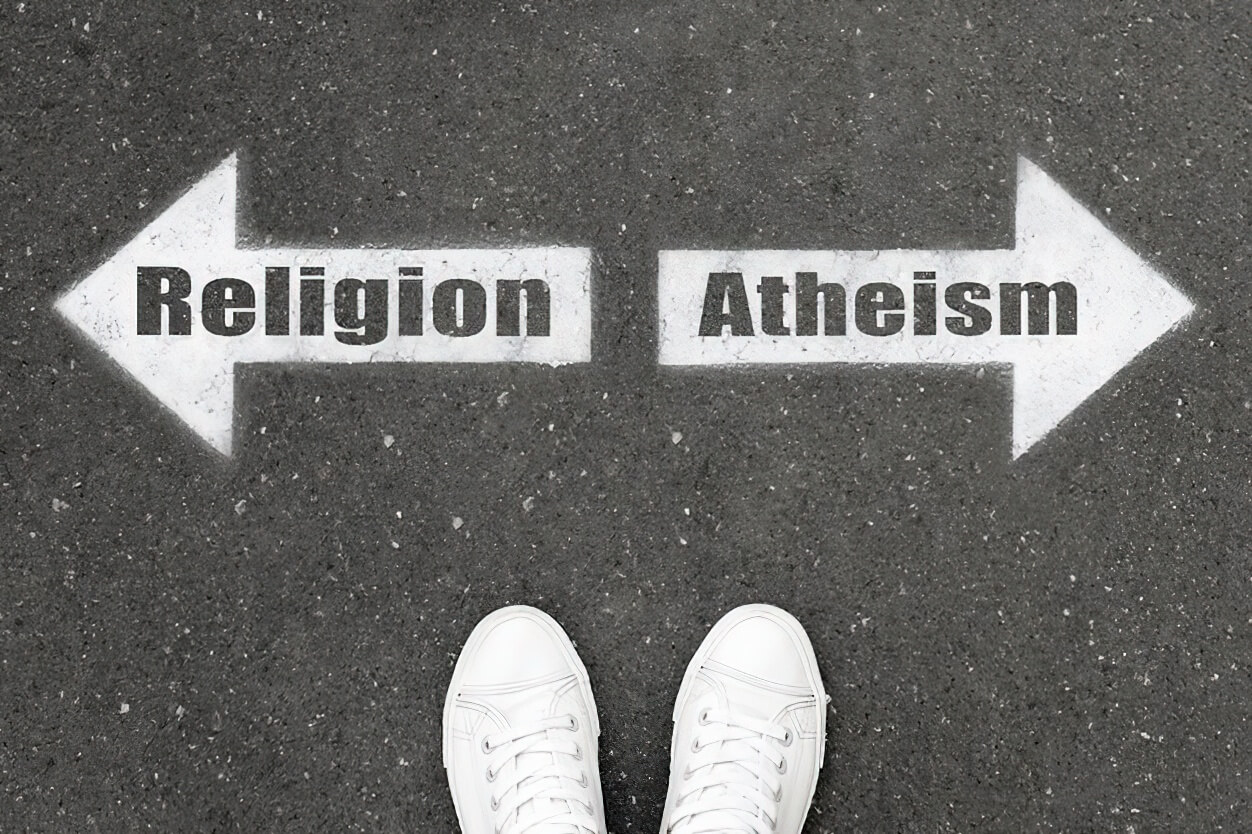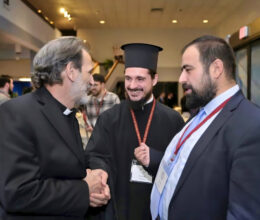Atheism is born out of a poor way of living and notably from the absence of desire to amend such a life. The great scientist Blaise Pascal (+1662) was convinced of this when he wrote, “Do not attempt to convince yourself of eternal truths through the many proofs of reason, but strive to diminish your passions.”
The atheist does not live according to God’s law but according to what he himself deems right. He follows not God’s will but his own and believes he has the correct stance on any issue regarding the world, life, or worldview. He lives according to the elements of the world, not according to Christ (Colossians 2:8). The Gospel does not interest him, but he gladly pays attention to the daily horoscope, to Vanga or Nostradamus, and sometimes even enjoys tales of “flying saucers” and “extraterrestrials,” possibly even believing in dreams. His dulled conscience whispers that he is morally responsible for every action, yet he quickly reassures himself that everything that exists is here in this world, that anything limiting his freedom is a harmful prejudice to be overcome.
For the atheist, faith is something difficult and barely comprehensible, even obstructive to human progress and development. To justify his disbelief, he invents various “reasons,” claiming, “Faith contradicts science!” Yet, weren’t the greatest scientists of the past and present believers? Newton, Lomonosov, Pasteur, Einstein, Linnaeus, and even Darwin believed in God.

Atheism can also be a result of ignorance and simplicity (“Who has come from the other world to tell us what it’s like?”), of semi-education and semi-intelligence (“Science has proven that God does not exist!”), but also of hatred and malice. The Russian missionary priest Viktor Nedzelnitsky writes, “There is a particular hatred in one who loves and acknowledges the lowly, the base, towards one who seeks and values the sublime: for example, the alcoholic despises the sober man; the cynic and libertine – virginity and modesty; the physical laborer – the educated, and the materialist – the admirer of spiritual values.” Similarly, the militant atheist despises the believer. The believer is like a mirror in which he clearly sees his spiritual nakedness and moral corruption. Intuitively, in the presence of a believer, the atheist sees a reproof of his conscience and a silent warning that his path leads to eternal perdition. Therefore, the atheist wants either everyone to become like him, or those who reprove his conscience to be removed. Here, largely, lies the reason for the current and historically constant persecutions against the Christian faith.
Atheism is also indifference towards oneself. Most atheists do not want to believe because they are not interested in God. Their life flows seemingly smoothly, normally; they can manage without God. They work, rest, eat, sleep, watch television, use computers, drive cars… in short, they live a completely normal life. They can read a book, attend a concert, travel abroad… what need do they have for God in all this? Eventually, like everyone, the atheist ages, death comes, and that’s all! A natural process!
We must admit that this form of atheism – the lukewarm, indifferent atheism – is the most persistent and widespread form of atheism today. It creates the illusion that nowadays people simply do not have time to believe or disbelieve, that it is not an important issue in our lives, that faith should be viewed as an accessory that some may occasionally find interesting. Baptism of a child or grandchild – oh, why not! A wedding in a church – a beautiful tradition! A funeral service in a temple – touching! And with that, the entire spicy garnish called religion in life is exhausted. This passive atheism, whose victims do not want to delve into the most important questions of human existence, baffles every rational person.
Isn’t it important for a person to know where they come from? Where they are going? What is the meaning of their life?
But if our entire existence here on earth and in eternity depends on belief in God or disbelief in Him, shouldn’t we be interested in this question?
The logic of the passive atheist is the logic of the mediocre, and their value system is entirely materialistic, here and there garnished with some ideal and emotional bias. When life goes smoothly, they swim in their waters, but in times of trouble and danger, in misfortune, they are utterly helpless. If they were rich and suddenly became poor, they see no further reason to live. If they were healthy and became seriously ill, they fall into depression and complete despair. If they were esteemed among people but were then disgraced, nothing can console them anymore…
The passive atheist is like a poor man invited to a lavish feast but sits under the table, collecting fallen crumbs, and in response to the invitation, claims they feel wonderful just the same. They are like a prisoner sentenced to death who does not contemplate their imminent end but how to choose their last wish and how to fully enjoy it. They have plugged their ears with the cotton of spiritual indifference so as not to hear the evangelical word of Christ the Giver of Life… St. Justin Popovich says, “Only petty souls cannot (because they do not want to) plunge into the divine depths of the world and there find its divine logic and idea, thought and meaning. Shallow parasites, they constantly remain on the surface of the world, and therefore they cannot do without worldly dust. That dust has filled their eyes, and they see neither God nor anything divine. They have declared the created as the first and last being, the first and last life, the first and last truth. And that is idolatry and the source of all idolatry, whether spiritual or physical.”















